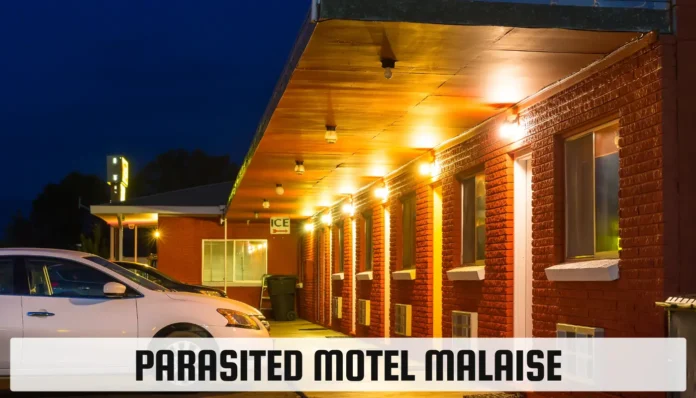Parasited Motel Malaise is a term used to describe the discomfort and health issues experienced by guests due to parasitic infestations in motel rooms. These parasites, including bed bugs, fleas, ticks, and lice, can cause a range of symptoms and contribute to a negative experience for travelers.
Relevance and Importance of the Topic
Understanding Parasited Motel Malaise is crucial for both travelers and motel owners. With the increasing number of travelers and the prevalence of parasitic infestations, being informed about prevention, detection, and treatment is essential for maintaining health and comfort during stays.
Historical Context
Origin and Evolution of Parasited Motel Malaise
The issue of parasitic infestations in motels has a long history, with bed bugs being documented as far back as ancient Egypt. Over time, the problem has evolved, with modern travel and globalization contributing to the spread of these pests.
Notable Historical Cases
In the 20th and 21st centuries, there have been several high-profile cases of motels and hotels facing severe infestations, leading to lawsuits and significant reputational damage. These cases highlight the importance of effective pest management practices.
Types and Classifications
Types of Parasites Involved
Bed Bugs
Bed bugs are small, nocturnal insects that feed on human blood. They are known for causing itchy bites and are notoriously difficult to eradicate.
Fleas
Fleas are another common parasite found in motels, often introduced by pets. They can cause itching and, in severe cases, transmit diseases.
Ticks
Ticks are less common in motels but can still pose a threat, especially in areas close to nature. They can transmit serious illnesses like Lyme disease.
Lice
Lice infestations in motels are rare but possible, usually spread through close contact or sharing bedding.
Categories of Affected Motels
Budget Motels
Budget motels, due to limited resources for pest control, are often more vulnerable to infestations.
Luxury Motels
While luxury motels may have more resources, they are not immune to infestations, particularly due to the high turnover of guests.
Long-term Stay Motels
Motels catering to long-term guests can face unique challenges, as infestations can go unnoticed for longer periods.
Symptoms and Signs
Common Symptoms for Guests
Itching
One of the most immediate and common symptoms experienced by guests is itching, often due to bites from bed bugs or fleas.
Rash
Rashes can develop from bites or allergic reactions to parasitic saliva.
Allergic Reactions
Some guests may experience more severe allergic reactions, including swelling and difficulty breathing.
Signs of Infestation in Rooms
Visible Bugs
Finding live or dead bugs in the room is a clear sign of infestation.
Blood Spots
Blood spots on sheets or mattresses indicate bed bug activity.
Fecal Spots
Small, dark spots on bedding or furniture can be fecal matter from bed bugs or fleas.
Causes and Risk Factors
Biological Factors
The biology of parasites, including their rapid reproduction and resistance to certain treatments, contributes to the difficulty in managing infestations.
Environmental Factors
Geographic Location
Certain regions, particularly warm and humid areas, are more prone to infestations.
Climate
Climate changes, such as warmer temperatures, can increase the prevalence of parasites.
Lifestyle Factors
Travel Habits
Frequent travelers are at higher risk of encountering and spreading parasites.
Hygiene Practices
Poor hygiene practices, both by guests and motel staff, can exacerbate the problem.
Diagnosis and Tests
Inspection Methods
Visual Inspection
A thorough visual inspection of the room, including bedding, furniture, and cracks, can help identify infestations.
Canine Detection
Specially trained dogs can detect the presence of bed bugs with high accuracy.
Laboratory Tests
Skin Biopsies
In cases of severe reactions, skin biopsies can help diagnose the type of parasite causing the symptoms.
Allergen Testing
Testing for specific allergens can confirm a reaction to parasitic bites.
Treatment Options
Medical Treatments
Topical Creams
Topical creams can relieve itching and inflammation caused by bites.
Antihistamines
Antihistamines can help manage allergic reactions and reduce itching.
Motel Room Treatments
Pesticides
Chemical pesticides can be effective but must be used with caution due to potential health risks.
Heat Treatments
Heat treatments are a non-chemical option that can effectively kill parasites.
Vacuuming and Cleaning
Regular vacuuming and thorough cleaning can help control infestations.
Preventive Measures
For Guests
Inspecting Rooms
Guests should inspect their rooms for signs of infestation upon arrival.
Avoiding Unnecessary Contact with Surfaces
Minimizing contact with surfaces, such as beds and furniture, can reduce the risk of bites.
For Motel Owners
Regular Inspections
Regular inspections by trained professionals can help catch infestations early.
Preventive Pest Control
Implementing preventive pest control measures can reduce the likelihood of infestations.
Personal Stories or Case Studies
Guest Experiences
Sharing personal stories from guests who have experienced infestations can highlight the real-life impact of Parasited Motel Malaise.
Motel Owner Experiences
Motel owners’ experiences with managing infestations can provide valuable insights into effective prevention and treatment strategies.
Expert Insights
Quotes from Medical Professionals
Medical professionals can offer advice on managing symptoms and preventing infestations.
Advice from Pest Control Experts
Pest control experts can provide tips on effective treatment and prevention methods.
Conclusion
Summary of Key Points
Summarizing the key points discussed in the article, including the importance of prevention, early detection, and effective treatment.
Call to Action for Further Education
Encouraging readers to educate themselves further on the topic and take proactive measures to protect themselves from Parasited Motel Malaise.

